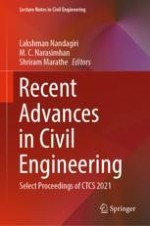2023 | OriginalPaper | Buchkapitel
Performance of Bacteria-Based Non-encapsulated Self-healing Concrete
verfasst von : G. Vigneswaran, K. Poonguzhali, D. Gowdhaman, A. Sumathi, A. Rajesh
Erschienen in: Recent Advances in Civil Engineering
Verlag: Springer Nature Singapore
Aktivieren Sie unsere intelligente Suche, um passende Fachinhalte oder Patente zu finden.
Wählen Sie Textabschnitte aus um mit Künstlicher Intelligenz passenden Patente zu finden. powered by
Markieren Sie Textabschnitte, um KI-gestützt weitere passende Inhalte zu finden. powered by
